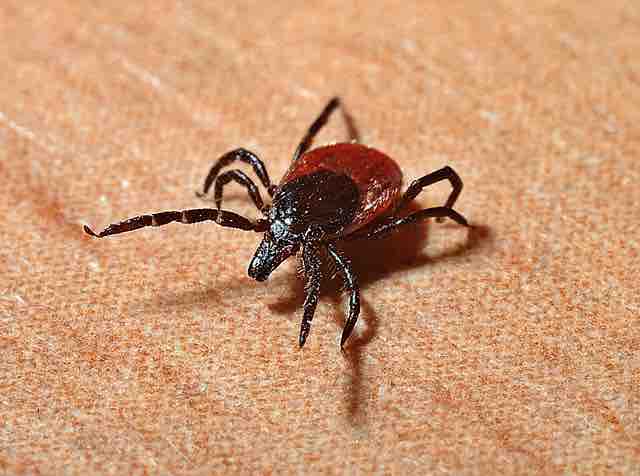As the weather warms up, many New Yorkers are excited to spend more time outdoors hiking, camping, and exploring nature. However, with the arrival of spring also comes the return of tick season. Ticks are small, blood-sucking parasites that can transmit diseases such as Lyme disease, Rocky Mountain spotted fever, and Babesiosis. It is essential for outdoor enthusiasts to take precautions and protect themselves against tick bites.
Ticks are commonly found in wooded and grassy areas, especially in the Northeast region of the United States. They can attach themselves to humans and pets, and can be difficult to detect because they are small and often hide in hard-to-reach areas like the scalp, groin, and armpits. That’s why it’s crucial to do regular tick checks every 15 minutes while spending time in tick-prone areas.
Tick checks should be done thoroughly, starting with the head and working your way down to the feet. Use a mirror to check your scalp and the back of your neck, and pay special attention to your ears and hairline. Don’t forget to check your armpits, groin, and behind your knees, as ticks love warm and moist areas. If you have pets, check them for ticks as well.
If you find a tick on your body, it’s essential to remove it as soon as possible to reduce the risk of disease transmission. Use a pair of fine-tipped tweezers to grasp the tick as close to the skin as possible and pull upward with steady, even pressure. Avoid twisting or jerking the tick, as this can cause the mouthparts to break off and remain in the skin. After removing the tick, clean the bite area with soap and water or rubbing alcohol.
While tick checks are an effective way to prevent tick bites, there are other precautions you can take to reduce your risk of exposure. Wear long sleeves and pants when spending time in tick-prone areas, and tuck your pants into your socks or boots to create a barrier. Use insect repellent with at least 20% DEET on exposed skin, and check yourself and your pets for ticks every 15 minutes. When you return home, take a shower and wash your clothes in hot water to kill any remaining ticks.
In conclusion, tick season is here, and it’s essential to take precautions to protect yourself against tick bites. Regular tick checks every 15 minutes, wearing protective clothing, and using insect repellent are effective ways to reduce your risk of exposure. If you do find a tick on your body, remove it as soon as possible and monitor the bite area for any signs of illness. With these simple steps, you can enjoy the outdoors while staying safe and healthy.












